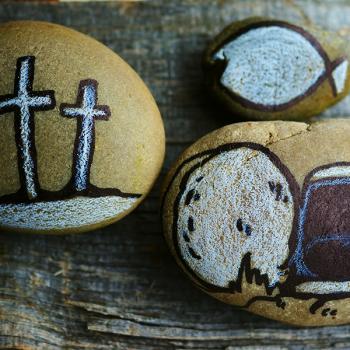
Let’s celebrate the diversity in our congregations and do whatever we can to promote it.
Many local churches now have a mix of backgrounds. As populations continue to move choice of new church is often not about the denomination or family of churches. In your church family you may well have people from all kinds of backgrounds now enjoying fellowship with you.
One reason for this is an Anglican Church in one town may be more similar to a Pentecostal in the next and a Baptist in the third. Most of our labels are now almost useless to define churches on most measures that really matter.
Many Christians also listen to sermons online or on Christian TV. Books and Christian websites like this one are widely available As a result your congregation will almost certainly be exposed to more voices than just the Sunday sermon.
In the 1970s and 1980s there were many painful splits over the Charismatic issue in local churches. Most of the hostility that arose has long since abated and that issue has joined others such as the arminian vs calvinist debate, and many others as areas Christians can disagree on whilst still respecting one another as Bible-loving followers of Christ.
Most churches seem happy enough to allow into the fold members who are clearly Christian but who might have slightly different doctrinal positions on certain issues. It is crucial to differentiate between crucial gospel centred issues and those which are not as central.
Actually I believe we both honour Christian unity and actually potentially enrich our churches by allowing for doctrinal diversity. One reason for this is that each of us is at risk of allowing our doctrinal convictions to make us blind to certain Bible verses. One example is a verse which at first glance seems to contradict itself. Arminians may well like one half and Calvinists the other.
“All that the Father gives me will come to me, and whoever comes to me I will never cast out.” (John 6:27, emphasis added)
In this verse we see Divine sovereignty AND human responsibility. If your theology rejects one half of this verse or the other, your theology is incorrect not Jesus. If we have both perspectives on this issue and others in our congregations it has the potential to help the depth of our understanding. Bible studies can be more stimulating if we have different viewpoints, provided we are mutually respectful and promote church unity. We can together learn how to reform our thinking to better match the Bible.
But its not just about doctrine, its also about different emphases in our character and spiritual practices. The truth is that we each reflect different aspects of Christ’s glory and so by having a diverse congregation we will be enriched as we each learn from other another.
Increasingly there is also diversity in ethnic backgrounds in our congregations and we can learn a huge amount from one another too. If we believe that every person is made in the image of God, then those from other cultures can open our eyes to areas we are blind because of the assumptions we hold because of our own cultures.
No church or culture is perfect we can all learn from each other.
Let’s celebrate the diversity in our congregations and do whatever we can to promote it.
READ MORE














